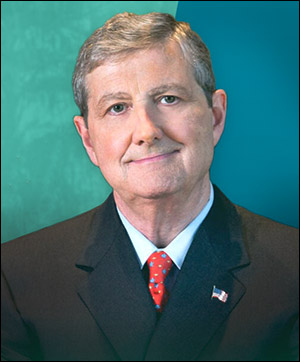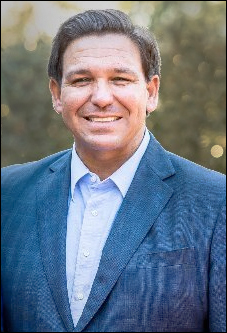
Former President Donald Trump / Photo by Gage Skidmore
By Jim Ellis — Thursday, Sept. 7, 2023
President
Trump: Insurrection or Rebellion? — There is a great deal of discussion mounting about whether a key provision of the 14th Amendment to the US Constitution will disqualify former President Donald Trump from the 2024 presidential election ballot.
Recently, two US senators, Tim Kaine (D-VA) and Mike Lee (R-UT), assumed opposite debate positions. The phrase “have engaged in insurrection or rebellion” is at the crux of the argument. Sen. Kaine believes Trump engaged in insurrection with regard to his actions surrounding the January 6th Capitol incursion and should be disqualified from running for office. Many legal scholars agree.
Conversely, Sen. Lee objects, citing that the US Senate found then-President Trump not guilty of insurrection in the second impeachment vote. Therefore, he says, the “rebellion or insurrection” phrase does not apply. Many legal scholars agree.
Sen. Kaine, during a CNN interview, argued that “the language (of the amendment) is specific: If you give aid and comfort to those who engage in an insurrection against the Constitution of the United States — it doesn’t say against the United States, it says against the Constitution. In my view, the attack on the Capitol that day was designed for a particular purpose … and that was to disrupt the peaceful transfer of power as is laid out in the Constitution.”
In an interview with Utah’s Deseret News, Sen. Lee indicated he agrees with the arguments put forth from University of California at Berkeley professor John Yoo and others who published a paper pertaining to this subject.
Professor Yoo and the others penned in part, “if it were clear that Trump engaged in insurrection, the Justice Department should have acted on the January 6 Committee’s referral for prosecution on that charge. Special Counsel Jack Smith should have indicted him for insurrection or seditious conspiracy, which remain federal crimes. If it were obvious that Trump had committed insurrection, Congress should have convicted him in the two weeks between January 6 and Inauguration Day. Instead, the House impeached Trump for indictment to insurrection but the Senate acquitted him.”
Obviously, there are strong opinions on both sides of this argument and, as Sen. Kaine said, the courts, and most likely the US Supreme Court, will ultimately have to make a ruling.
The larger question, however, that no one is yet addressing, is when all of this will happen. If, for example, Trump is convicted in the Washington, DC trial regarding his January 6th actions, the 14th Amendment move to disqualify him could be triggered. Should this scenario unfold, perhaps the most important point would be whether the timing is before or after the Republican National Convention now scheduled for July 15-18, 2024.
If Trump’s name is stricken from the ballot, and that will likely become a state by state issue, then the Republicans will have to nominate a new candidate, assuming that Trump has accumulated enough delegates to clinch the nomination. Currently, the latter observation appears highly likely.
If the disqualification move comes before the RNC meets, the delegates could then nominate a new candidate in an open convention. After Trump becomes the official party nominee, then a whole new set of circumstances will occur, most of which will be subject to conjecture.
Will the vice presidential nominee automatically assume the top ballot positions? Would the RNC instead be called into a special convention to nominate another candidate? Would every state recognize the RNC action, regardless of the course the national political party chooses?
Should the 14th Amendment scenario not be solved before the convention convenes, it is probable the delegates would pass binding resolutions to cover a succession protocol in case what currently exists in the party bylaws is not wholly clear or does not fully apply to the current situation. In any event, political and legal chaos would undoubtedly ensue.
Consider the situation already coming to the forefront in Arizona. Democratic Secretary of State Adrian Fontes says his state’s Supreme Court has already answered the 14th Amendment issue. Fontes says, though he disagrees with the court’s ruling, that the Arizona Supreme Court has dictated Congress would have to specifically designate that Trump, or any other candidate, is to be disqualified from the ballot as it relates to the 14th Amendment insurrection or rebellion language. Otherwise, the candidate in question would be placed on the Arizona ballot.
It is very likely we will see other states invoking some exception or quirk in their own election law that would either place Trump on their ballot or disqualify him. Therefore, the 2024 election participants would then be forced to traverse another set of controversial circumstances that will clearly affect the outcome of the still unfolding campaign.






